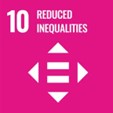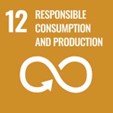2023–27 Departmental Sustainable Development Strategy
Click to view the 2023–24 Departmental Sustainable Development Strategy Report.
ISSN 2817-8270
Click to view the document in PDF.
Table of Contents
Introduction to the Departmental Sustainable Development Strategy
The 2022 to 2026 Federal Sustainable Development Strategy (FSDS) presents the Government of Canada’s sustainable development goals and targets, as required by the Federal Sustainable Development Act. This is the first FSDS to be framed using the 17 Sustainable Development Goals (SDGs) of the United Nations 2030 Agenda and provides a balanced view of the environmental, social and economic dimensions of sustainable development.
In keeping with the purpose of the Act, to make decision-making related to sustainable development more transparent and accountable to Parliament, the Office of the Public Sector Integrity Commissioner of Canada (the Office) supports the goals laid out in the FSDS through the activities described in this Departmental Sustainable Development Strategy (DSDS).
The Federal Sustainable Development Act also sets out seven principles that must be considered in the development of the FSDS as well as DSDSs. These basic principles have been considered and incorporated in the Office’s DSDS.
In order to promote coordinated action on sustainable development across the Government of Canada, this departmental strategy integrates efforts to advance Canada’s implementation of the 2030 Agenda National Strategy, supported by the Global Indicator Framework (GIF) and Canadian Indicator Framework (CIF) targets and indicators. The strategy also now captures SDG initiatives that fall outside the scope of the FSDS to inform the development of the Canada’s Annual Report on the 2030 Agenda and the SDGs.
The Office of the Public Sector Integrity Commissioner of Canada’s Sustainable Development Vision
The Office of the Public Sector Integrity Commissioner of Canada (the Office) recognizes the importance of taking action to support sustainable development. As a micro-organization we face unique opportunities and challenges. Our size allows us to be agile and implement plans in a quick and efficient manner. On the other hand, we recognize that our impact may be small, but we believe that every action, no matter the size, has an important and necessary effect on furthering the government’s sustainable development goals.
In the coming years, we will be working towards three FSDS goals: advancing reconciliation with indigenous peoples and take action on inequality; reducing waste and transitioning to zero-emission vehicles; and taking action on climate change and its impacts. Our strategy for achieving these goals is rooted in the education of our employees, as our strength lies in the actions and knowledge of those working at the Office.
The first commitment we have outlined is to provide training to the Office employees related to Indigenous cultural competency training and the United Nations Declaration on the Rights of Indigenous Peoples. In this regard, our size is an advantage as it allows us to easily and accurately track completion levels of this training, as well as providing all-staff learning opportunities. By learning together, we can create a safe environment for discourse and questions, ensuring employees are immersed in the learning experience, and truly gaining important knowledge.
As a micro-organization we regularly procure services and goods in support of our work. To this end, we will ensure all procurement and materiel management specialists are trained in green procurement, such as the Canada School of Public Service course on green procurement. This training will prepare specialists to support managers in making procurement decisions that support sustainable development.
Finally, like any organization, big or small, the Office purchases goods on a regular basis, and with this final goal, we will aim to decrease our impact on the environment through environmentally responsible procurement. We will ensure sustainable consumption and production patterns by applying green procurement to all material and supplies purchased in day-to-day operations.
We have selected these goals and actions because they are realistic and measurable. This will set us up for success, and allow us to be accountable for our progress. The Office is committed to doing our part in support of the sustainable development strategy of the government.
Listening to Canadians
As required by the Federal Sustainable Development Act, the Office has taken into account comments on the draft 2022 to 2026 FSDS made during the public consultation held from March 11 to July 9, 2022. During the public consultation, more than 700 comments were received from a broad range of stakeholders, including governments, Indigenous organizations, non-governmental organizations, academics, businesses, and individual Canadians in different age groups and of various backgrounds. The draft FSDS was also shared with the appropriate committee of each House of Parliament, the Commissioner of the Environment and Sustainable Development, and the Sustainable Development Advisory Council for their review and comment.
What We Heard
Across the submissions received, the Office identified sustainable development priorities and issues that affect us. Overall, commenters addressed the need to strengthen the content of the government green procurement actions and targets, and the importance of incorporating social and economic aspects of sustainable development in the DSDS.
What We Did
The Office took the above-mentioned key priorities and issues into consideration in this DSDS. To address these comments in its DSDS, the Office is committed to improving its Green Procurement Strategy by reducing waste and promoting green procurement in its daily operations, and is also committed to raising awareness on the United Nations Declaration on the Rights of Indigenous Peoples, and on the social, economic and environmental inequalities that persist in Canada by raising awareness among its employees.
Please find more information on the FSDS public consultation and its results in the FSDS Consultation Report
The Office of the Public Sector Integrity Commissioner’s Commitments

Goal 10: Advance Reconciliation with Indigenous Peoples and Take Action on Inequality
FSDS context: To take action on inequality and advancing reconciliation with First Nations, Inuit, and Métis communities, the Government of Canada is committed to implementing the United Nations Declaration on the Rights of Indigenous Peoples. The Office shares this goal, and will raise awareness by providing mandatory training for all its employees on the United Nations Declaration on the Rights of Indigenous Peoples, and on the social, economic and environmental inequalities that persist in Canada.
Target theme: Advancing reconciliation with First Nations, Inuit, and the Métis communities
Target: Between 2023 and 2026, and every year on an ongoing basis, develop and table annual progress reports on implementing the United Nations Declaration on the Rights of Indigenous Peoples Act (Minister of Justice and Attorney General of Canada)
| Implementation Strategy | Departmental Action | Performance Indicator, Starting Point, Target | How the Departmental Action Contributes to the FSDS Goal and Target and, Where Applicable, to Canada’s 2030 Agenda National Strategy and SDGS |
|---|---|---|---|
| Implement the United Nations Declaration on the Rights of Indigenous Peoples Act |
|
|
|

Goal 12: Reduce Waste and Transition to Zero-Emission Vehicles
FSDS context: The Government of Canada is committed to transitioning to a cleaner and more circular economy that prioritizes reducing consumption and waste generation, in order to reduce negative impacts on the environment. The Office is also dedicated to the reduction of waste in its daily operation, by ensuring that all procurement officers receive training on green procurement.
Target theme: Federal Leadership on Responsible Consumption
Target: The Government of Canada’s procurement of goods and services will be net-zero emissions by 2050, to aid the transition to a net-zero, circular economy (All Ministers)
| Implementation Strategy | Departmental Action | Performance Indicator, Starting Point, Target | How the Departmental Action Contributes to the FSDS Goal and Target and, Where Applicable, to Canada’s 2030 Agenda National Strategy and SDGS |
|---|---|---|---|
| Strengthen green procurement criteria |
|
|
|

Goal 13: Take Action on Climate Change and Its Impacts
FSDS context: The effects of climate change, such as extreme temperatures, are affecting Canadians now more than ever before. In order to reduce the effects of climate change, all must do their part. The Office is committed to taking action on climate change and its impacts by implementing the Green Government Strategy through measures that reduce the environmental burden of its daily operations.
Target theme: Federal Leadership on Greenhouse Gas Emissions Reductions and Climate Resilience
Target: The Government of Canada will transition to climate resilient operations by 2050 (All Ministers)
| Implementation Strategy | Departmental Action | Performance Indicator, Starting Point, Target | How the Departmental Action Contributes to the FSDS Goal and Target and, Where Applicable, to Canada’s 2030 Agenda National Strategy and SDGS |
|---|---|---|---|
| Implement the Greening Government Strategy through measures that reduce greenhouse gas emissions, improve climate resilience, and green the government’s overall operations |
|
|
|
Integrating Sustainable Development
The Office will continue to ensure that its decision-making process includes consideration of FSDS goals and targets through its strategic environmental assessment (SEA) process. An SEA for a policy, plan or program proposal includes an analysis of the impacts of the given proposal on the environment, including on relevant FSDS goals and targets.
Public statements on the results of The Office’s assessments are made public when an initiative that has undergone a detailed SEA is announced (see here). The purpose of the public statement is to demonstrate that the environmental effects, including the impacts on achieving the FSDS goals and targets, of the approved policy, plan or program have been considered during proposal development and decision making.